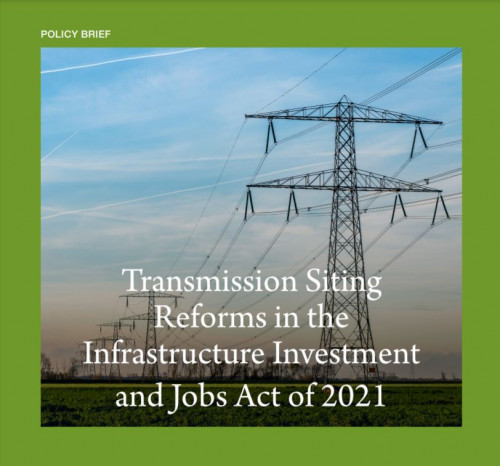-
Comments to FAR Council on Considering Climate in Federal Procurement
Together with several environmental nonprofits, we filed comments supporting the Federal Acquisition Regulatory Council's emphasis on climate-sensitive procurement. We endorse using the social cost of greenhouse gases in procurement decisions and suggest rigorous ways for agencies to incorporate those figures into their analyses of different bids and proposals.
-
Comments to FERC on Mitigation Technical Conference
We submitted post-technical conference comments to FERC regarding its authority to consider greenhouse gas emissions and to impose mitigation conditions in assessing whether to grant a certificate of public convenience and necessity for interstate natural gas pipelines and other infrastructure projects. Our comments also recommend that the Commission prescribe reasonable default estimates for calculating emissions and monetize climate damages using the social cost of greenhouse gases to assess the project's climate impacts under NEPA and balance them against benefits under the NGA.
-
Amicus Brief in Tenth Circuit Challenge to Oil and Gas Permitting in New Mexico
The Bureau of Land Management's approval of over 300 drilling permits in New Mexico would allow for an increase in production resulting in more than $1.6 billion in climate damages. We filed an amicus brief in the U.S. Court of Appeals for the Tenth Circuit criticizing the agency's analysis of the project, which inappropriately minimizes these climate impacts through comparison to nationwide totals. We explain that this approach does not facilitate a rational analysis of the project's climate effects.
-
Comments to HHS on Proposed Repeal of the SUNSET Rule
We submitted comments to the Department of Health and Human Services (HHS) supporting its proposed repeal of the SUNSET Rule, which retrospectively and prospectively established an "expiration date" for thousands of HHS regulations. We explain why the SUNSET Rule is arbitrary and capricious, echoing our earlier comments, and and propose ways that HHS can strengthen its justification for repealing the rule.
-
Comments to Federal Transit Administration on Electric Vehicle Equity
We submitted comments in response to the Federal Transit Administration's (FTA) request for information on updating its Title VI Circular, which lays out nondiscrimination requirements for transit providers who receive funding from the agency. Our comments encourage FTA to require the nondiscriminatory distribution of clean vehicles across transit systems and to create the appropriate reporting requirements that would allow the agency to monitor this.
-
Transmission Siting Reforms in the Infrastructure Investment and Jobs Act of 2021
This policy brief highlights Infrastructure Investment and Jobs Act (IIJA) provisions that are relevant to transmission siting, summarizes the changes they effectuate, and describes important implications of those changes for efforts to develop more interstate transmission capacity. It then offers a brief assessment of the IIJA’s overarching significance to such efforts, including by comparing them to a more ambitious legislative alternative.
-
Comments to AHRQ on Its Role in Climate Change and Environmental Justice
Policy Integrity submitted comments to the Agency for Healthcare Research and Quality (AHRQ) describing how the agency could integrate climate change and environmental justice considerations into its work.
-
Comments to Dept of Labor on ESG Investing by Retirement Plans
We submitted joint comments with partners from the Environmental Defense Fund and the Initiative on Climate Risk and Resilience Law supporting the Department of Labor’s (DOL) revision of Trump-era restrictions on ESG investing by retirement plans.
-
Comments on BOEM’s Environmental Impact Statement for the Proposed Cook Inlet Lease Sale 258
The Bureau of Ocean Energy Management (“BOEM”) recently released an environmental impact statement (“EIS”) for its proposal to lease more than one million acres of submerged land on the Alaska Outer Continental Shelf for oil and gas development. BOEM proposes to take this action despite estimating that it could lead to more than $1.3 billion in climate damages, and despite presenting no estimate of the economic benefits, against which these climate costs might be compared.
-
Comments to BLM on 2022 First Quarter Lease Sales
We applaud BLM for considering and monetizing climate impacts in their environmental assessments (EAs) for oil and gas lease sales, but recommend that the agency improve its decisionmaking by better incorporating these values into its final determination, considering the informational value of delaying leasing, and conducting more robust environmental justice analyses to inform its decisionmaking.




